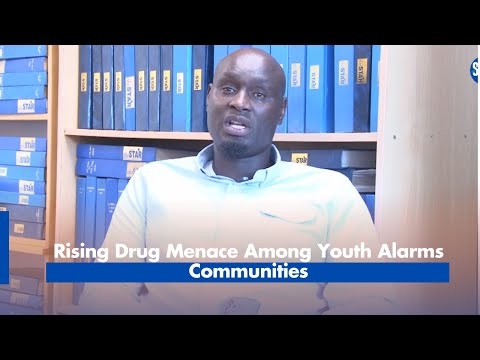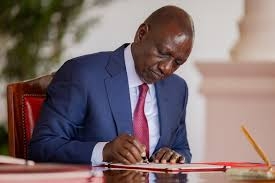
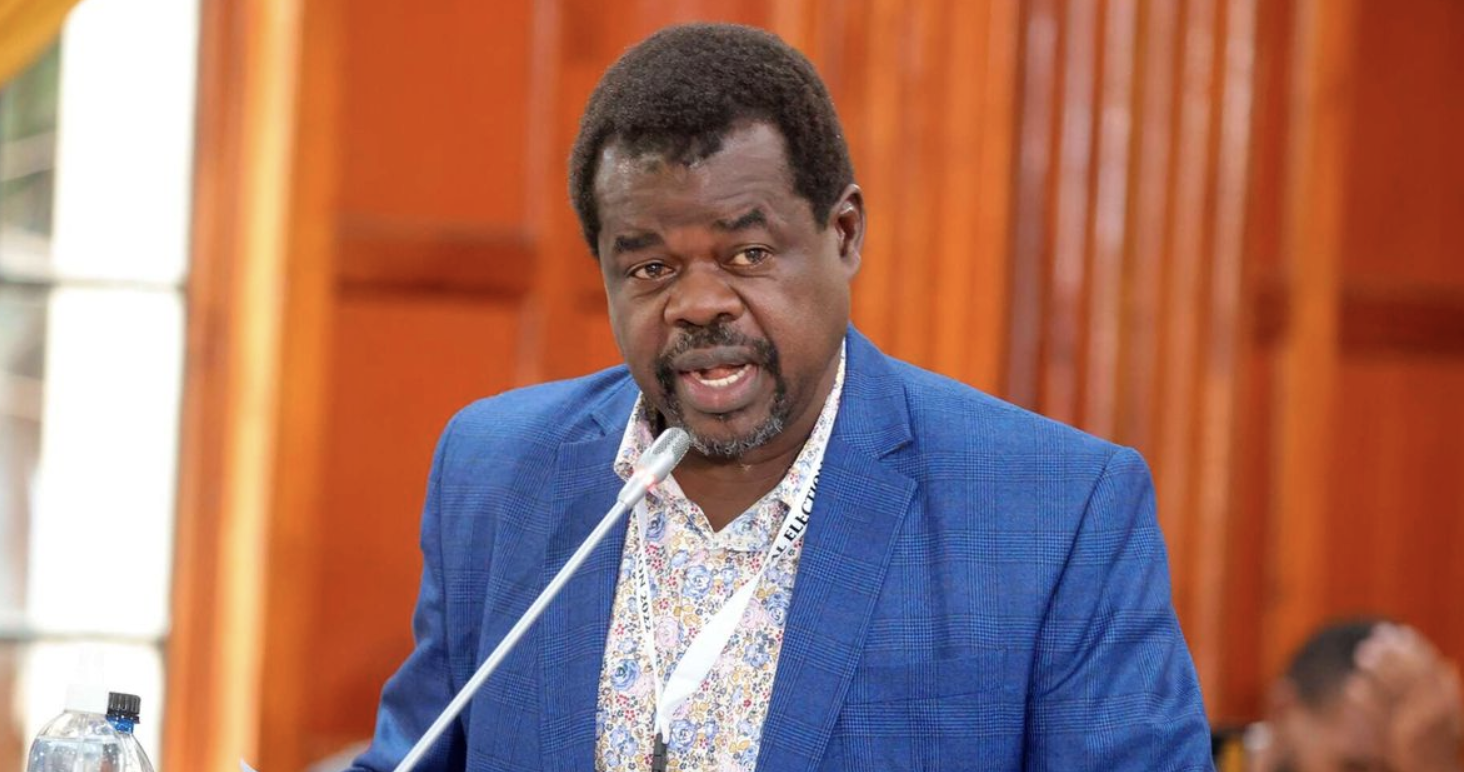
Busia Senator Okiya Omtatah has urged the public to get the correct version of the 8 Bills signed into law by President William Ruto, saying some were fundamentally altered from the original drafts.
“At the very onset, I wish to clarify that the eight Acts of Parliament are not the same as their source Bills, which were published and tabled in the National Assembly. So, those commenting on them should be awake to the fact that some underwent major changes as they were processed in the House,” Omtatah says.
“Some people are even discussing totally irrelevant Bills that were rejected by Parliament, such as the one that had proposed levies to be imposed on freehold private land,” he added.
The senator has picked five of the new sets of legislation, saying some of their provisions violate the constitution.
On the land laws, Omtatah argues that the National Land Commission (Amendment) Act, 2025, which repeals and replaces Sections 14 and 15 of the National Land Commission Act, is a desperate attempt by the National Assembly to defeat the High Court Constitution and Human Rights Petition No. E349 of 2021.
“The amended Act still violates the Constitution by imposing on the commission a five-year time limit from the commencement of the Act, within which to execute its mandate to review all public land grants or dispositions made between 1895 and 2010, and to investigate and recommend remedies for historical land injustices, including restitution, compensation, resettlement, or revocation of irregular titles, with determinations to be completed within one year and implemented within three years.”
The Privatisation Act, 2025 creates a legal framework to govern the disposal of state-owned enterprises by repealing the old Privatisation Act (CAP 485B), which was assented to on 13th October 2005 and commenced on 1st January 2008, and establishes a new structure with an empowered Privatisation Authority, defined oversight by the Cabinet Secretary, and requires the identification of public entities for privatisation through a published programme that must be ratified by the National Assembly.
“However, the Act is voided by its definition of “privatisation” to mean a transaction that results in a transfer of the assets and or liabilities of a public entity to a private one, without excluding public land. By doing so, the Act is unconstitutional and, therefore, invalid, null and void ab initio because under the Constitution of Kenya, 2010, public land cannot be privatised.”
He added;
“For clarity, completeness and the avoidance of doubt, Article 68(c)(iv) of the Constitution expressly prohibits the privatisation of public land by requiring Parliament to enact legislation “to protect, conserve and provide access to all public land. I posit that the National Assembly has no capacity to contravene that express provision of the Constitution by enacting legislation that allows public land to be privatised.”
Further, Omtatah added that Section 4(f) provides that the Act does not to apply to “the sale or transfer of shares by a county government”, yet county governments hold shares in some companies earmarked for privatisation under Section 71 of the Act vide Gazette Notice No. 8739 of 12th August, 2009, which was published in Nairobi on 14th August 2009 in the Special Issue of the Kenya Gazette, Vol. CXI—No. 70.
They include Mt Elgon Lodge Limited – KTDC 72.92%: Kitale Municipal Council 13.54%; and Trans Nzoia County Council 13.54%; b) Golf Hotel Limited – KTDC 80%; and Kakamega Municipal Council 20%; and, c) Sunset Hotel Limited – KTDC 95.4 and Kisumu Municipal Council 4.6%.
“The Act is also void ab initio because it was not presented to the Senate for consideration and approval and yet it concerns the privatisation of public land and the disposal of shares held in public entities by county governments.”
On the Computer Misuse and Cybercrimes (Amendment) Act, 2025, the Senator says it was supposed to but dismally fails to strengthen the cybercrime law.
“It is bad law to the extent that it uses vague definitions that introduce ambiguous and overly broad offences which rogue officials can invoke to limit the freedom of expression, media freedom, and access to information by criminalising speech, opinion, or commentary which is critical of influential individuals or institutions.”




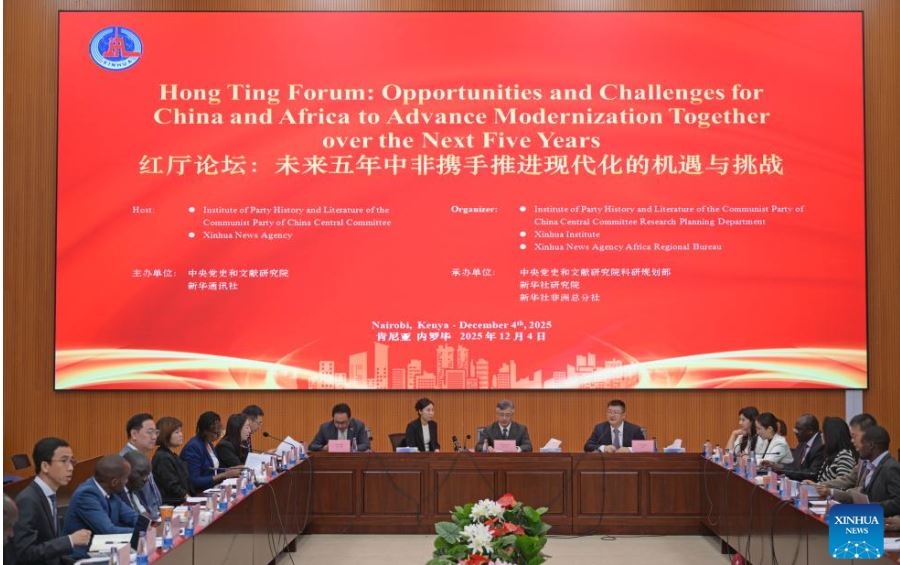
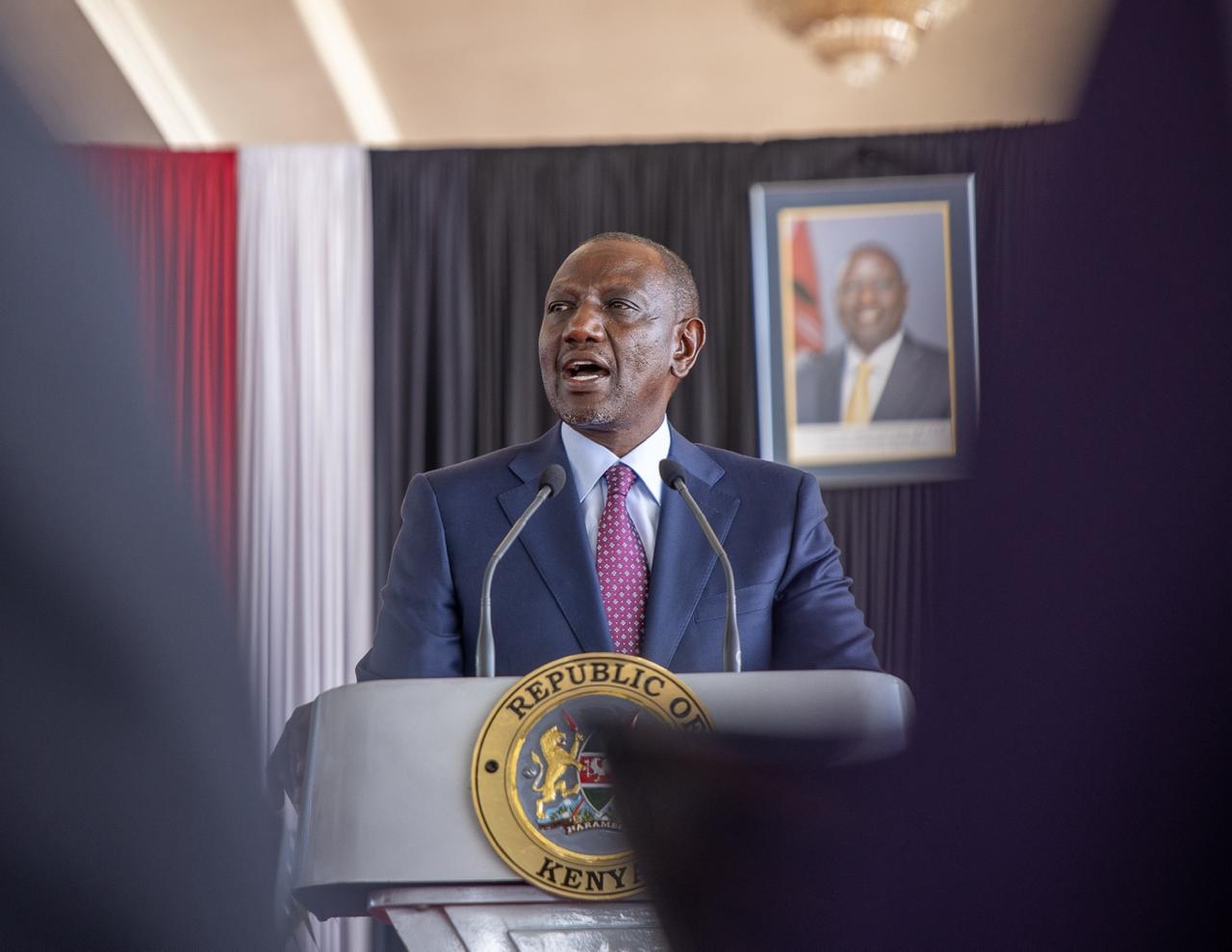

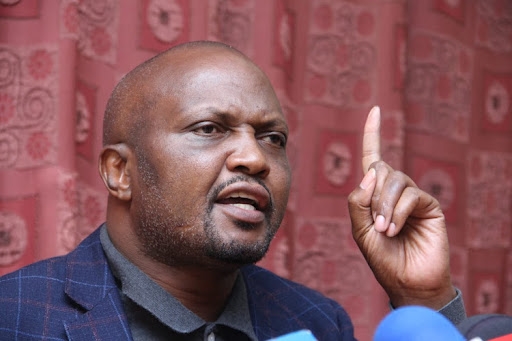


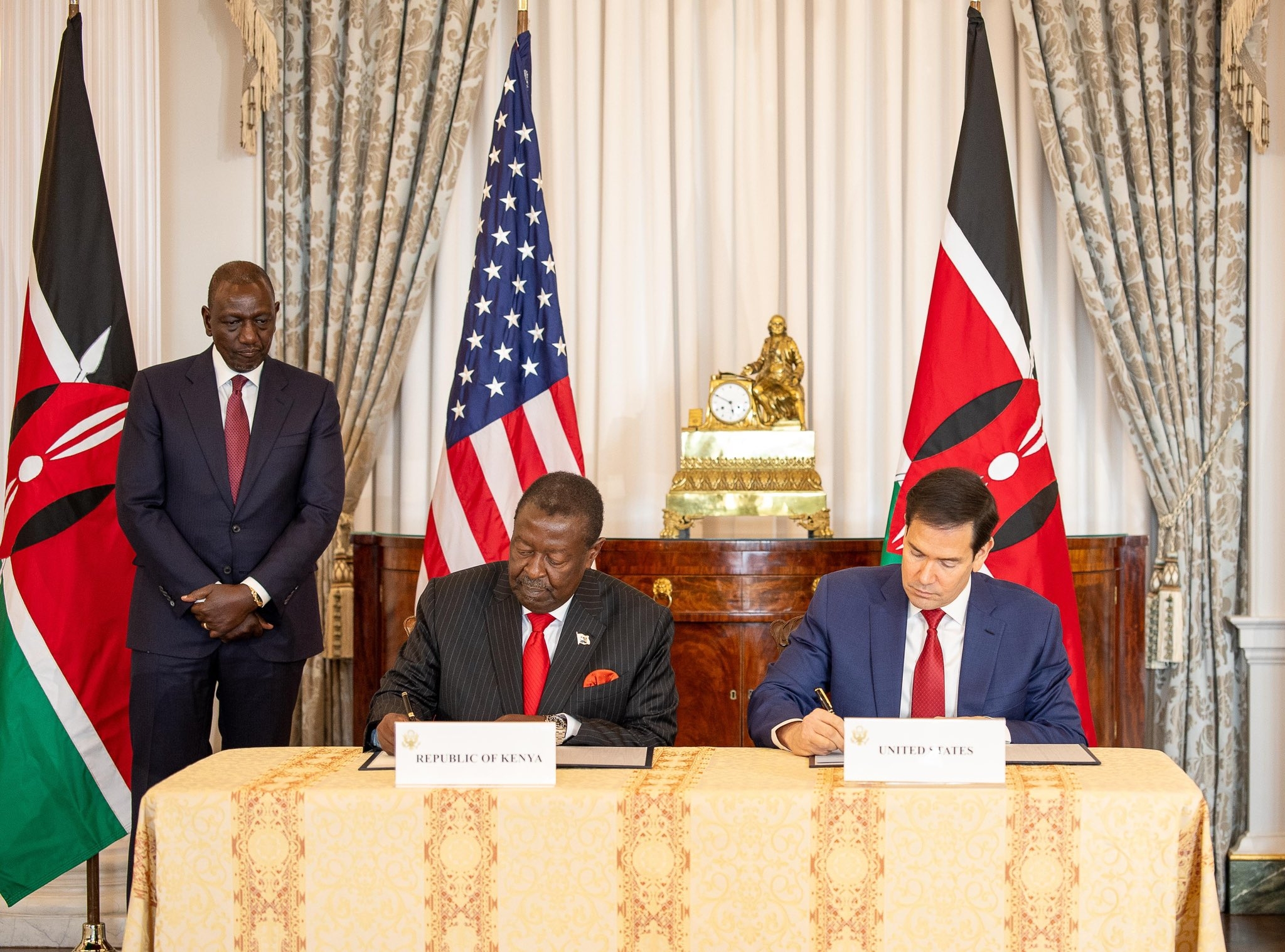
.jpg&w=3840&q=100)
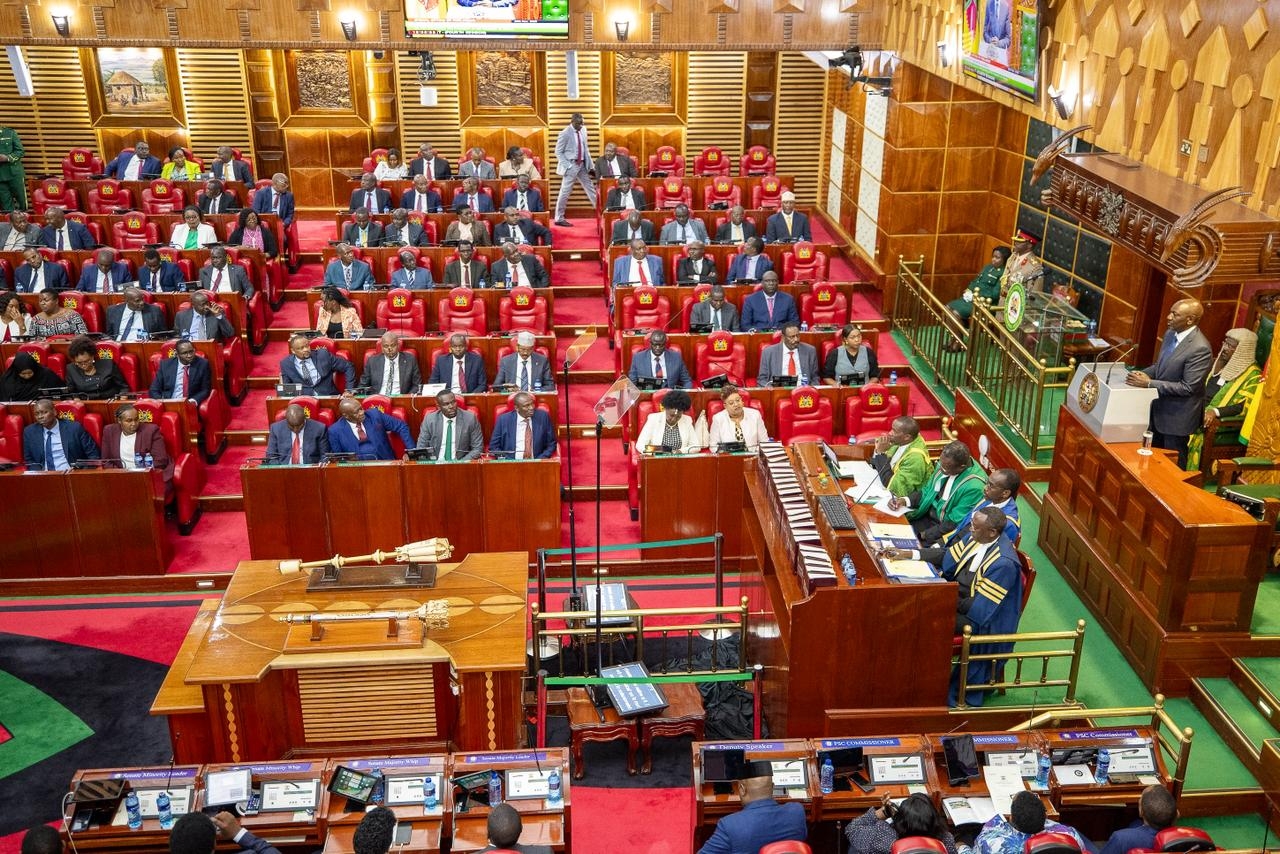


![[PHOTOS] Queen Mary of Denmark arrives in Kenya](/_next/image?url=https%3A%2F%2Fcdn.radioafrica.digital%2Fimage%2F2025%2F12%2F19fd066d-efd7-4a2c-8804-138bd107761f.jpg&w=3840&q=100)

